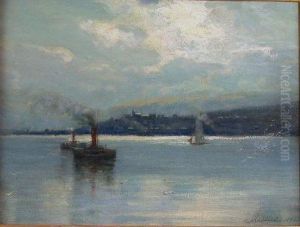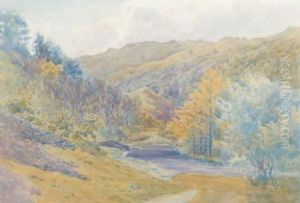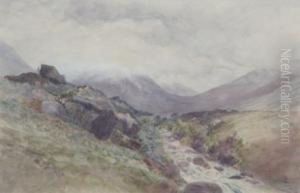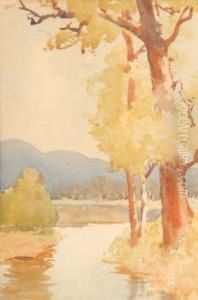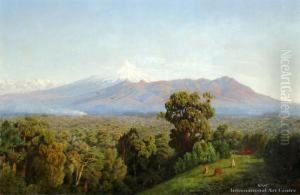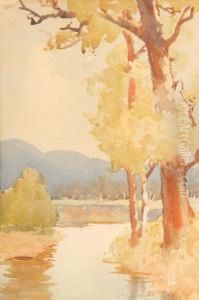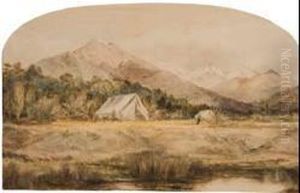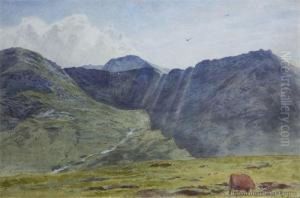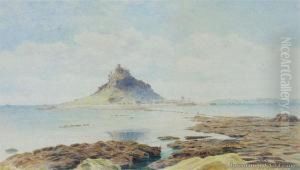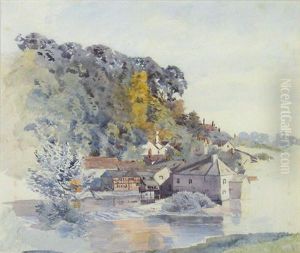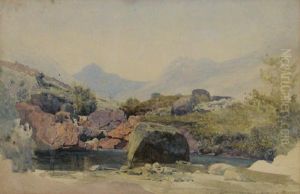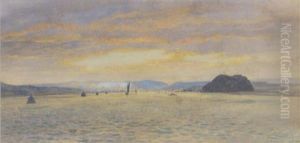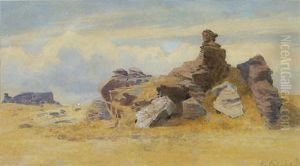James Crowe Richmond Paintings
James Crowe Richmond was a New Zealand painter, engineer, and politician born on September 27, 1822, in London, England. He was part of a notable family that emigrated to New Zealand in the 1850s, a period during which the country was undergoing significant colonization and development by European settlers.
Richmond received his education in England and showed an early interest in art. Despite his passion for painting, he was trained as a civil engineer—a profession that he practiced upon his arrival in New Zealand. His engineering work often took him across the country, providing him with opportunities to sketch and paint the diverse New Zealand landscapes, which became a central theme in his artistic works.
Richmond's paintings are characterized by their detailed representation of the New Zealand terrain, flora, and fauna, capturing the country's unique natural beauty during the mid-19th century. His works served as visual documentation of the landscapes before they were significantly altered by the expansion of European settlement and agriculture. Not only did Richmond's artistry hold aesthetic value, but it also provided historical insights into the early colonial period of New Zealand.
In addition to his career as an engineer and artist, Richmond was also actively involved in politics. He served as a member of the New Zealand Parliament at various times between 1853 and 1867, representing different constituencies. His political career was marked by his support for the development of public infrastructure and his involvement in the governance of the burgeoning colony.
James Crowe Richmond's contributions to both art and public service were significant in the context of New Zealand's history. His paintings remain a valuable visual record of the country's early colonial landscape, and his public works and political endeavors contributed to the shaping of the nation. He passed away on January 19, 1898, in New Plymouth, New Zealand, leaving behind a legacy as a multifaceted individual who captured the essence of an era through his brushstrokes and civic duties.
